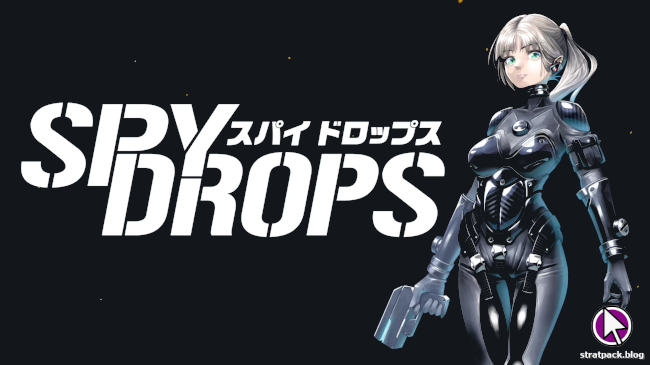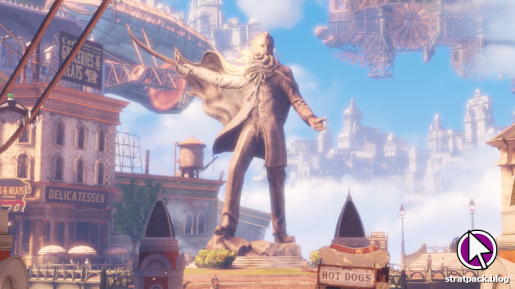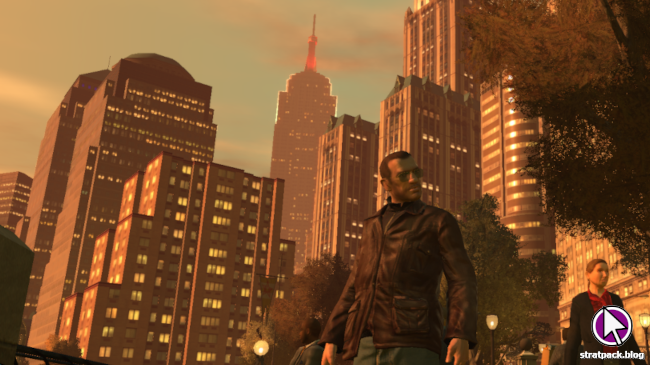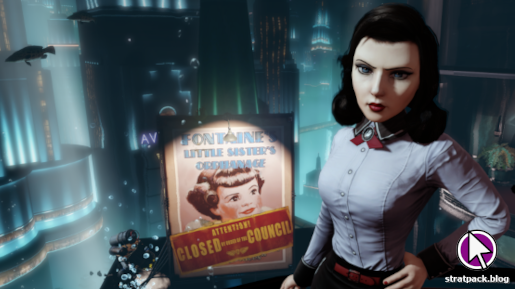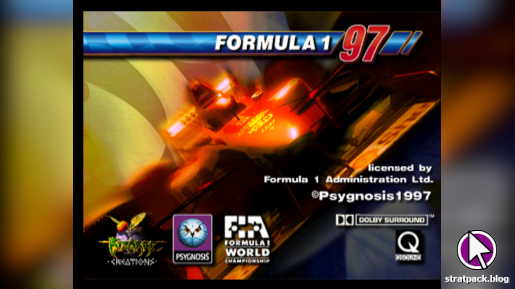
Heartbound: An intriguing Early Access indie game about life itself
How does your experience of a game change if you can listen to its developer talk for hours every day? That’s the rather unusual question presented by Heartbound, an Early Access game whose creator is also a streamer. But whether you’ve caught Thor online or not, the indie game has plenty of intrigue to unpack in its own right.
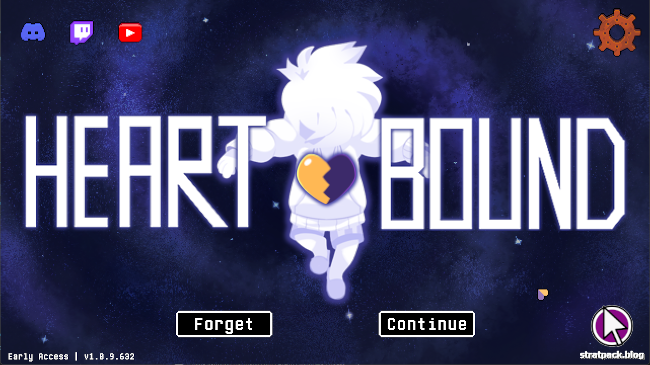
Heartbound has been a while in the making. The first version of the indie game was made available under Steam’s Early Access programme in December 2018, and its ironically-named developer Pirate Software - fronted by Jason Thor Hall - has been adding content as it’s become ready ever since. As of August 2024, the game currently consists of three of a planned five segments, one of which does not yet have an ending, and which take about three hours to play through altogether.
Unusually, Thor streams his work on Twitch and YouTube, where he has a combined 3 million followers at the time of writing. There aren’t many games whose developers discuss their design philosophy online for hours every day, and it makes for a unique experience when playing the portion of the game that is currently available.
Don’t judge a tome by its cover
Heartbound follows Lore - a boy whose dog, Baron, disappears one night. Venturing outside to search for his lost friend, he encounters some mysterious sort of demon, and is drawn into an adventure that sees him dragged unwillingly through a series of surreal worlds, meeting some outlandlish and memorable characters along the way.
At a surface level, nothing about Heartbound’s narrative caught my eye too much. There’s a lot of rambling about artefacts and destiny, the people - and… things - Lore meets speak in endless riddles that keep him in the dark, and he’s constantly pleading with them to leave him alone so he can find Baron. It’s all a little bit cliched.
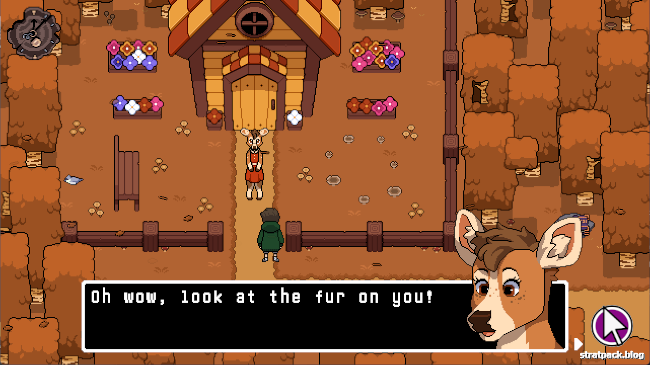
However, the game becomes more captivating when you read between the lines. The core story is about a boy looking for his dog, but Lore’s innocent perspective invites attempts by his companions to impart wisdom about life, and while not every tidbit has equal impact, there are a fair few gems littered through the dialogue.
One of the recurring themes is that life is best lived with an open heart. On his journey, Lore is haunted by a disembodied voice that encourages him to keep his mouth shut, push others away, and ultimately close up. Some of the player choices ask us to decide whether to obey it or not. While we’re yet to see where exactly it all goes, this certainly struck a chord with me and I’m sure it will with many others, too.
Through forests and cubicle farms
The tale is delivered in a retro style, via areas that are mostly a screen or two in size. Everything runs smoothly - Thor has spoken at length about how much satisfication he finds in optimising Heartbound as far as possible, and he even ran a challenge for fans to get it running on a smart fridge (spoiler alert: they succeeded).
The mood varies a lot between levels and worlds, which currently include a cutesy forest with talking animals and - my favourite - a stylised and vaguely threatening cubicle farm rendered in red, black, and white, which is set to a funky telephone-inspired soundtrack. Perhaps it was always going to be a hit given my background in tech, but something about the atmopshere of that level really resonated with me.
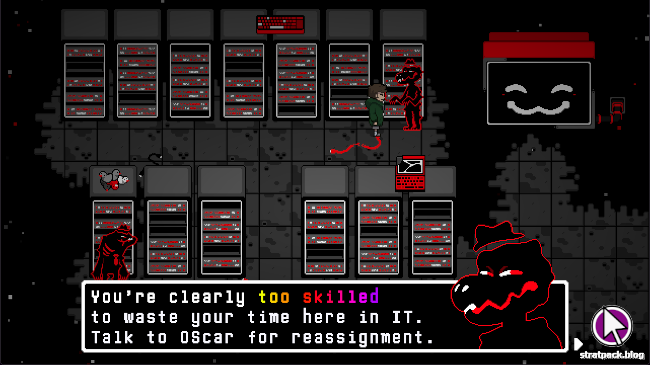
Dialogue is unvoiced, instead appearing in the traditional text box at the bottom of the screen. Heartbound adds a few twists on this staple of retro gaming, with letters rippling and bouncing to denote emphasis or sarcasm. Some of the writing itself feels to me like it’s trying to be a touch too sassy, but just as you feel it’s all getting a bit too Marvel, it drops some of the aforementioned philosophical substance.
Exploring your options
Heartbound’s controls are very tidy, catering to all tastes, whether you prefer WSAD or the arrow keys, the spacebar or a left-click. In terms of structure, it initially feels very much like an A-to-B-type game, but later tasks do mix up the formula and require Lore to backtrack through areas, seek out items, and so on.
Most areas have an entrance, an exit, and sometimes a puzzle that involves pushing objects around and flipping switches. Boss fights are conducted via a series of minimally-explained mini-games, which I found unexpectedly satisfying as it felt like each time they cropped up I was slightly more prepared, much like Lore himself.
Pirate Software’s website contains some interesting explanation of Thor’s design philosophy, including the concept of exploration as player choice. For instance, the site mentions that leaving a light switch on or taking out the rubbish (or not) could influence subsequent in-game events in both “minor and major” ways.
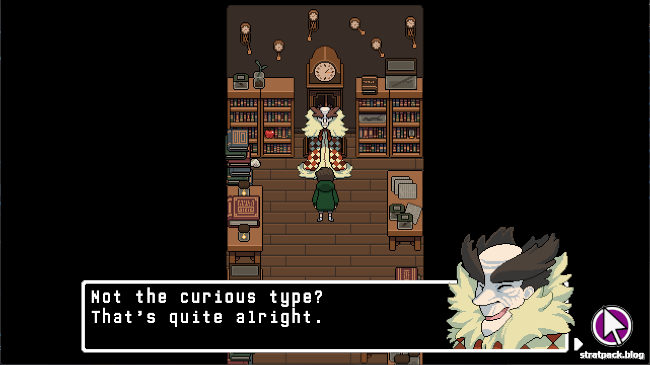
Heartbound is full of unmarked interactions - the player must identify an item of interest, approach it, and press the action button to learn more - and while I’m not sure I ever felt any significant change as a result, I did enjoy characters remarking on my actions. For example, once when I walked through a room quickly without checking much, one guy commented that I’m “not the curious type”.
Transparency, good and bad
Overall, I enjoyed Heartbound, and will definitely go back to complete the game once it’s finished. It has a charming style, some interesting twists on ideas that have been around for decades, and a plot that - while not the most original out there (so far) - contains some thought-provoking dialogue. It was obviously crafted with care.
Having dabbled in basic game development in the past, it’s also refreshing to play a title that is so controlled in scope. Heartbound feels achievable, and for that reason my playthrough gave me the urge to jump back in at some point in future. That Thor streams his work also means that you can catch glimpses of his personality in-game, and I had an extra appreciation for the small touches and effects that must have been real eureka moments when he got them running as he envisioned.
The flip side of this transparency is that it sometimes becomes intrusive, especially when it comes to the writing. Being so familiar with the game’s creator means that it’s hard not to imagine certain lines of dialogue - especially those that mirror his real-life catchphrases - coming out of Thor’s mouth, rather than that of the character that’s supposed to be speaking them. It’s hard to evaluate whether that’s just a product of the unique situation, or a missed opportunity for better characterisation.
Heartbound is a promising beginning to an indie game. Given that the first version emerged almost six years ago, it’s hard to tell when it will be complete. But between the carefully crafted worlds, touching music, and occasionally insightful dialogue, there’s plenty here already for the Early Access price of £8.50 to both entertain you and inspire you to get out there and make games of your own.






